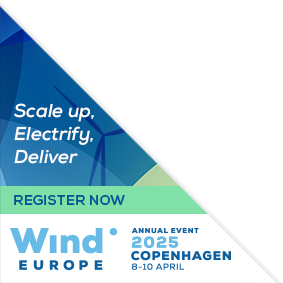We would like to invite you to come and see the posters at our upcoming conference. The posters will showcase a diverse range of research topics, and will give delegates an opportunity to engage with the authors and learn more about their work. Whether you are a seasoned researcher or simply curious about the latest developments in your field, we believe that the posters will offer something of interest to everyone. So please join us at the conference and take advantage of this opportunity to learn and engage with your peers in the academic community. We look forward to seeing you there!

PO062: Determining the life cycle environmental impacts of Airborne Wind Energy: Harmonisation approach
Kristian Petrick, Secretary General, Airborne Wind Europe
Abstract
Airborne Wind Energy is linked to little material use and rather easy transportation and placement of the electricity producing system. Today, several companies have reached TRL of up to 7 for 50-150 kW systems. When aiming to go towards operation, scaling up, and becoming a part of the electricity supply in various context, the environmental implications of such action should be known. Life Cycle Assessment (LCA) is best suited to analyse impacts on the environment of the full life cycle of electricity production with AWE, including identification of environmental hotspots. While LCA is easily applied as design guidance for current small-scale systems, scaling the latter up and deployment in future years requires the application of learning curves, scaling rates, and a prospective view on potential changes in the supply chains as well as applications of AWE systems within a prospective LCA (pLCA). The AWE community has made a joint effort to harmonise LCA studies by setting up a consolidated LCA guidance in the frame of the IEA Task 48 on AWE. This presentation explains these guidelines, and tests and visualizes them at the example of several case studies which are undertaken at Paul Scherrer Institute (CH), Politecnico Milano (IT), Technical University (TU) Berlin/TU Munich (DE). These LCA results are compared to existing publications (e.g. Wilhelm 2018 (doi.org/10.1007/978-981-10-1947-0_30), Hagen et al. 2023 (doi.org/doi.org/10.3390/en16041750). Already published and first case study results suggest that material intensity of AWE electricity is low (ca. 1-3 kg/MWh), while the impacts on climate change are below 10 g CO2-eq/kWh for the assessed systems.











